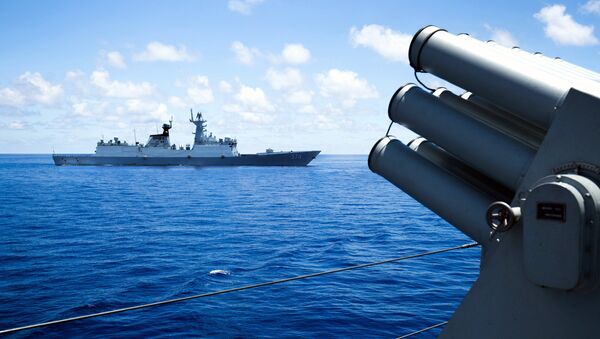Radio Sputnik discussed the issue with Dr. John Short, political analyst and Professor of Public Policy at the University of Maryland.
"I think it is a part of Trump's new rhetoric, America first and America strong. Especially, America strong in global geopolitics," Short said.
The analyst spoke about whether these statements are just rhetoric or if Trump will actually act on them.
Talking about whether such rhetoric could lead to US facing a naval blockade, the analyst said that, "It is extremely unlikely for that to happen."
He said that would make things extremely difficult for everyone. "The last time we were facing something like that was the Cuban missile crisis and we escaped that without facing nuclear annihilation," Short said.
According to him most of the military will counsel against this and the administration would strongly resist undertaking such a naval blockade.
"China has access to a huge part of the US market and the US has more limited access to the Chinese market and so that of course could be a part of the deal and I think that’s where the Trump administration's future lies, embodying the notion that the new president can do deals, he can strike bargains and I am sure that this South China Sea issue can figure into broader bilateral talks and access to the markets," Short said.
Following his remarks, the Chinese media said that Washington would need to wage war to achieve this. Many analysts suggest that the recent statements by the new White House administration may signify the possibility of military action, or even a naval blockade, that would lead to a large-scale confrontation with China.



